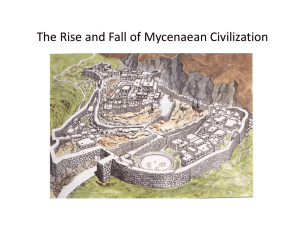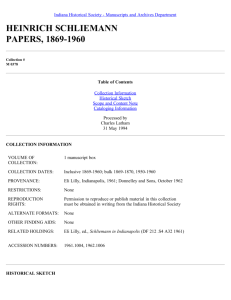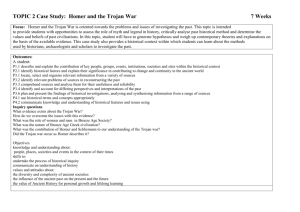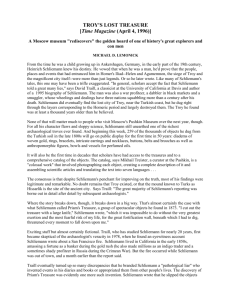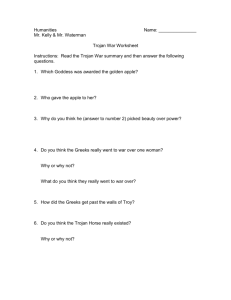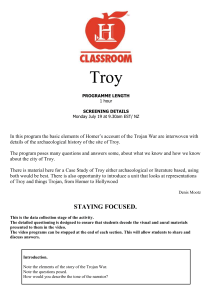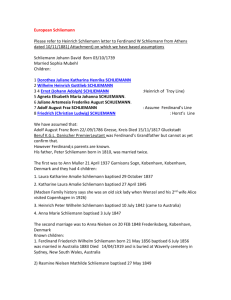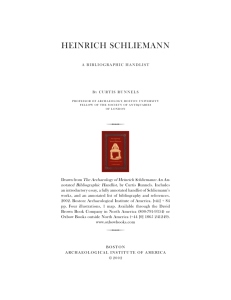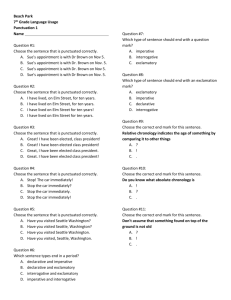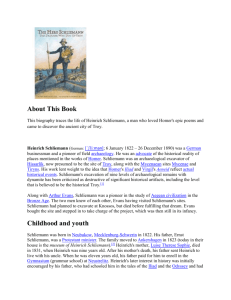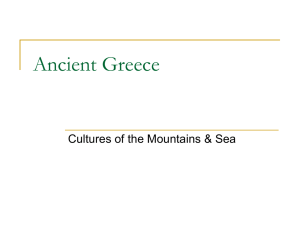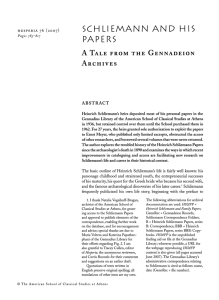SCHLIEMANN, Heinrich (1822-90)
advertisement
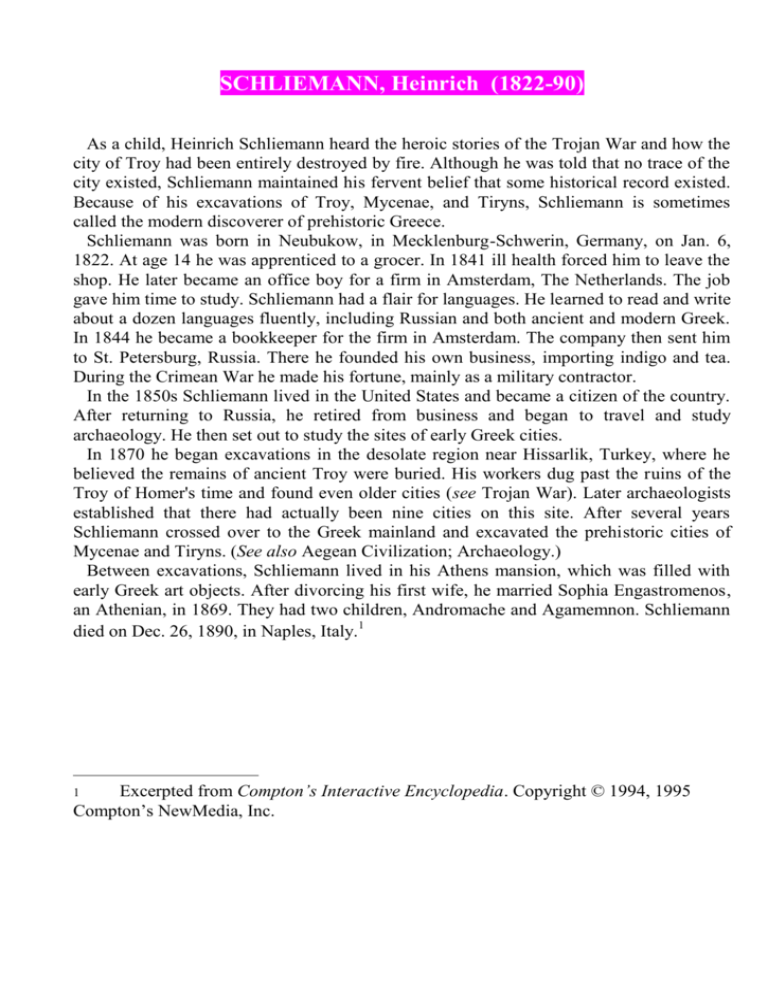
SCHLIEMANN, Heinrich (1822-90) As a child, Heinrich Schliemann heard the heroic stories of the Trojan War and how the city of Troy had been entirely destroyed by fire. Although he was told that no trace of the city existed, Schliemann maintained his fervent belief that some historical record existed. Because of his excavations of Troy, Mycenae, and Tiryns, Schliemann is sometimes called the modern discoverer of prehistoric Greece. Schliemann was born in Neubukow, in Mecklenburg-Schwerin, Germany, on Jan. 6, 1822. At age 14 he was apprenticed to a grocer. In 1841 ill health forced him to leave the shop. He later became an office boy for a firm in Amsterdam, The Netherlands. The job gave him time to study. Schliemann had a flair for languages. He learned to read and write about a dozen languages fluently, including Russian and both ancient and modern Greek. In 1844 he became a bookkeeper for the firm in Amsterdam. The company then sent him to St. Petersburg, Russia. There he founded his own business, importing indigo and tea. During the Crimean War he made his fortune, mainly as a military contractor. In the 1850s Schliemann lived in the United States and became a citizen of the country. After returning to Russia, he retired from business and began to travel and study archaeology. He then set out to study the sites of early Greek cities. In 1870 he began excavations in the desolate region near Hissarlik, Turkey, where he believed the remains of ancient Troy were buried. His workers dug past the ruins of the Troy of Homer's time and found even older cities (see Trojan War). Later archaeologists established that there had actually been nine cities on this site. After several years Schliemann crossed over to the Greek mainland and excavated the prehistoric cities of Mycenae and Tiryns. (See also Aegean Civilization; Archaeology.) Between excavations, Schliemann lived in his Athens mansion, which was filled with early Greek art objects. After divorcing his first wife, he married Sophia Engastromenos, an Athenian, in 1869. They had two children, Andromache and Agamemnon. Schliemann died on Dec. 26, 1890, in Naples, Italy.1 Excerpted from Compton’s Interactive Encyclopedia. Copyright © 1994, 1995 Compton’s NewMedia, Inc. 1
